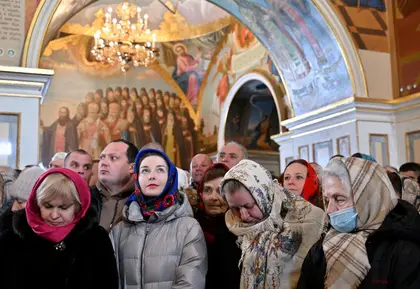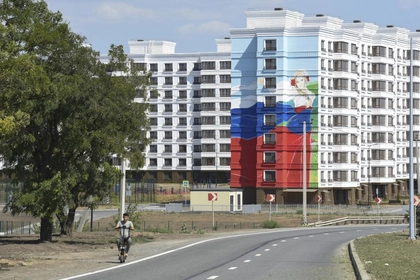On Jan. 7, Ukrainians celebrate Christmas for the second time. Although most of the world celebrates Christmas on Dec. 25, there remain supporters of two dates in Ukraine. The Rating sociological group conducted a survey on Nov. 20-21, 2022 regarding Ukrainians’ attitudes about changing the date of Christmas celebration was examined.
It turned out that over the past year, the number of those who celebrate Christmas only on Dec. 25 has increased slightly (from 4% to 11%), as well as those who celebrate it on both dates (from 18% to 25%). The majority (55%) will celebrate Christmas on Jan. 7 (in 2021 – 71%). A mere 8% do not celebrate Christmas at all (the highest number is recorded among young people, residents of the South, and the capital). The double celebration of Christmas or celebration only on Dec. 25 was more often mentioned by the residents of the West, Kyiv, younger respondents, and Greek Catholics.
JOIN US ON TELEGRAM
Follow our coverage of the war on the @Kyivpost_official.
Despite this, Christmas holidays are special in Ukrainian culture. Traditions that are still popular today have been formed throughout the centuries, often vestiges of pagan rituals.
The evening before Christmas is called Holy Evening. Preparations begin before dawn with the kindling of a fire of 12 logs, stored for 12 days. Any other work, except cooking, is unacceptable on this day. The entire family gathers at home. On the table there has to be an obligatory symbol of Christmas – a didukh, which is a decoration made of a sheaf of grain, symbolizing the cult of ancestors. Near it, they put an axe or other iron object that will protect the house from evil forces.

IMF Approves $1.1 Billion Loan Disbursement to Ukraine Before Trump Inauguration
The table is covered with a tablecloth, under which a head of garlic is placed in all corners, also for protection. Then they lay out baked bread and kalachi cookies. As soon as the first star appears in the sky, the whole family sits down at the table with 12 different and dishes with no red meat – borsch, dumplings, mushrooms, fish, and uzvar, a beverage made with dried fruit. The obligatory dish of Christmas is kutya. It is a ceremonial food made of wheat or barley grains with the addition of honey, nuts, raisins and poppy seeds.
Before starting the meal, the head of the family remembers all the ancestors with a prayer. After that, the host lights a candle, bows to the four corners and offers everyone at the table to eat three spoons of kutya, only then you can move on to other dishes.
Then the host himself (or with his family) has to go around his household with bread, honey, poppy seeds and water, fumigating everything with incense to protect the household. Since it is believed that on the Holy Evening every animal can talk to God, the owners should go around their entire household (dogs, cats, horses, cows, pigs, etc.). It is necessary to thank each animal and treat it with something nice, so that when talking to God, the animal will answer that it lives well with its owner.
After that, the host walks to the entrance, holding a whip or an ax, and shuts the door behind them, keeping it shut until the morning, so as not to allow evil inside.
Food from the meal is left on the table overnight with new spoons and glasses, as it is believed that at night the ancestors will come to eat the festive dishes.
In the morning, children bring ritual food to godparents and grandparents, who in turn give children nuts, candy, apples or money. The event begins with a procession around the church. They usually walk in small groups, where everyone has their own role. They are led by the "birch," the "treasurer" collects gifts, the "mikhonosha" carries them, and there is always a "star bearer," who carries an eight-pointed star symbolizing joy, with a candle and bells.
According to the beliefs of our ancestors, on Holy Evening, the forces of chaos and all evil spirits that can prevent the maturation of the light force are activated. So traditionally, the next day, young people will change their clothes, put on masks, or smear their faces with soot so that evil forces won’t recognize them. They go from house to house, singing carols to drive away evil spirits, and generously glorify their host.
The carolers represent the ancestors of the family, the soothsayers of enlightenment. The rituals of caroling have many variants, but their meaning is the same – greeting the hosts, who gives gifts to the carolers, and honors the ancestors. An ancient and unique Christmas custom is walking with a vertep – a portable theater, whose amateur actors present mostly religious stories to the audience.
Another ancient Christmas tradition in Ukraine is divination. It was believed that on this day divination is the most truthful, as the boundaries between the worlds of the living and the dead become the thinnest, and otherworldly forces penetrate the human world, revealing the secrets of the future. Usually, they divine for a good harvest, weather, wealth, and marriage.
In addition, Ukrainians adhere to the ancient tradition of reconciling on this day, forgiving each other for their offenses.
You can also highlight the text and press Ctrl + Enter






